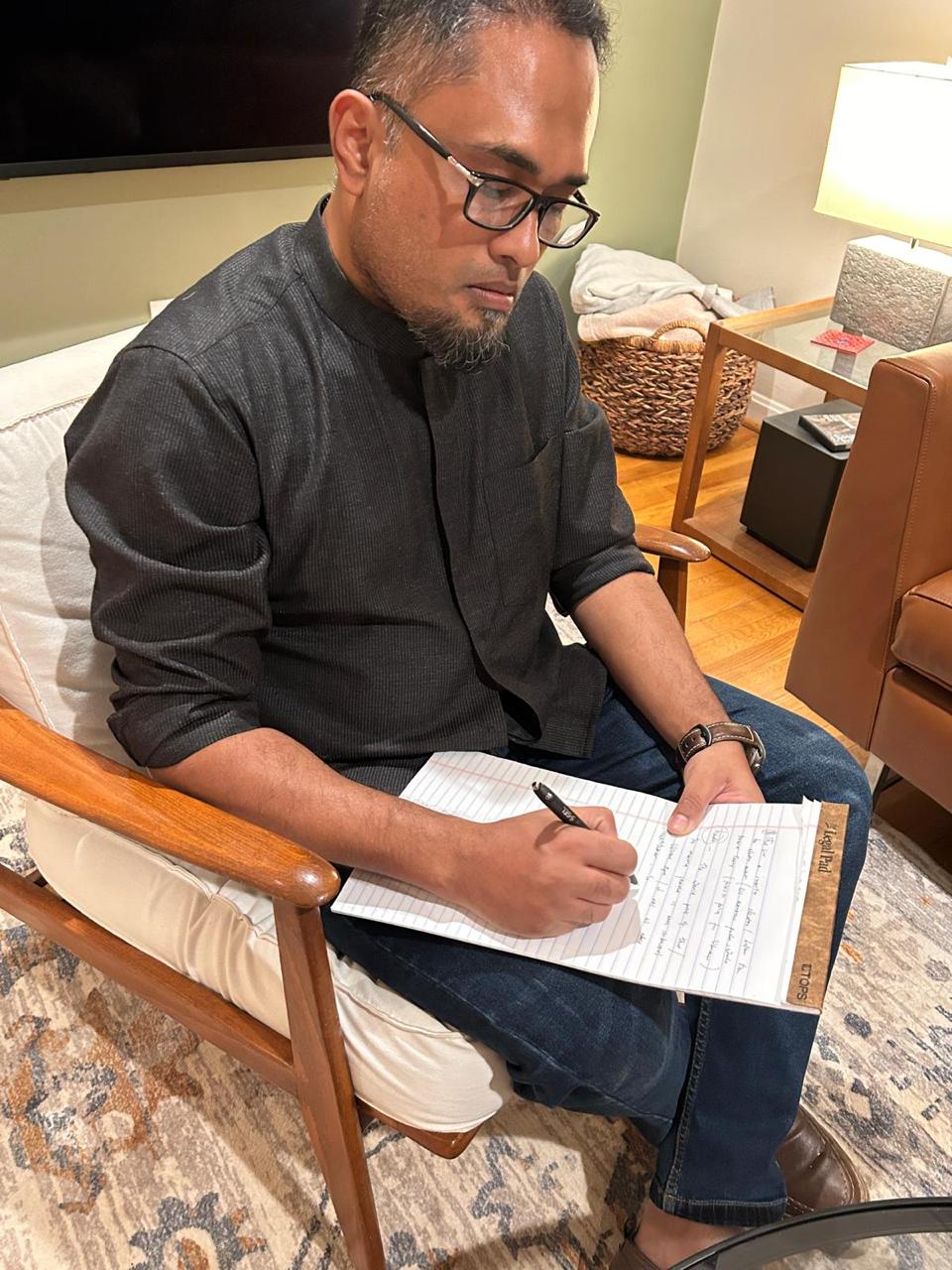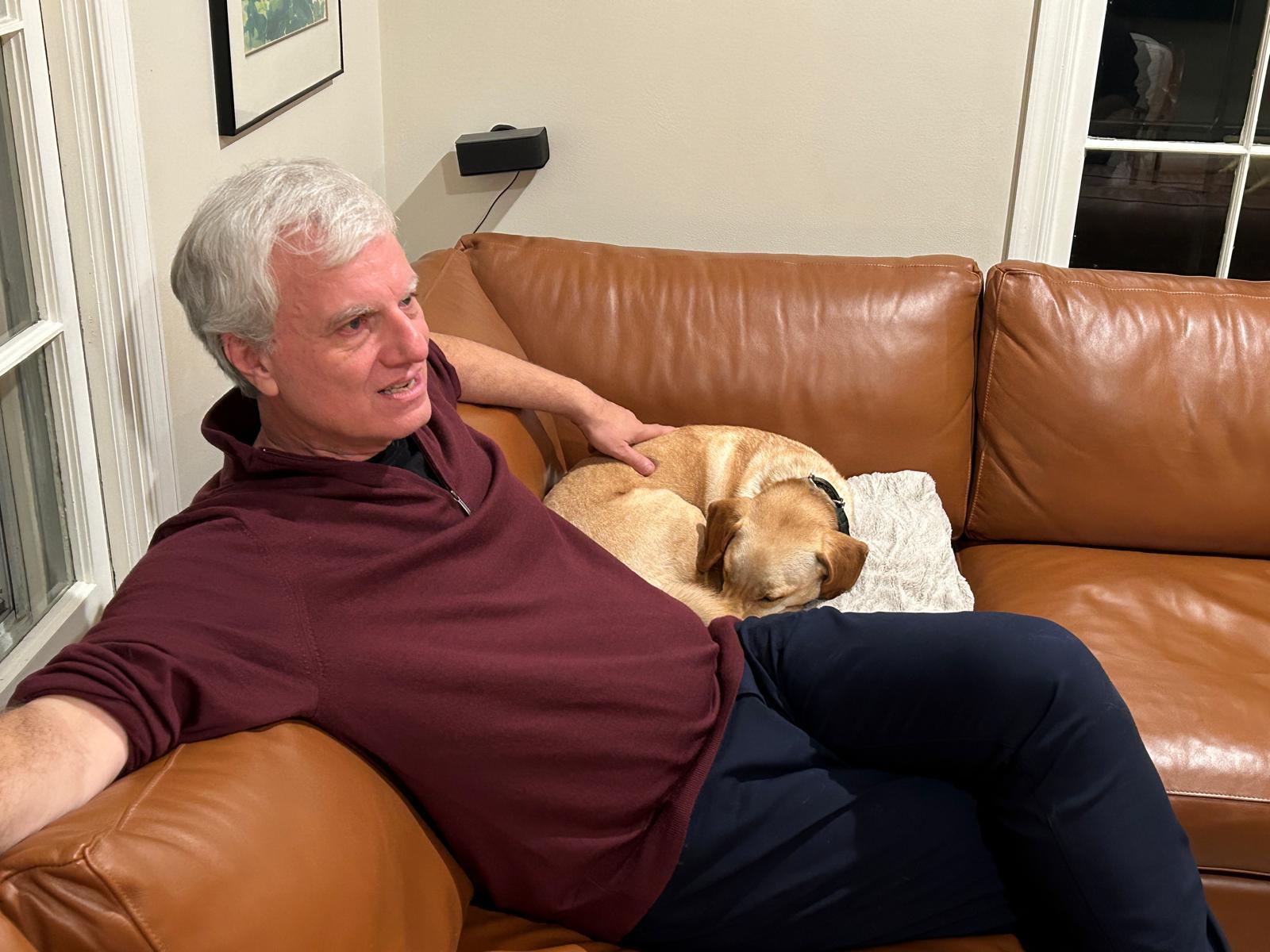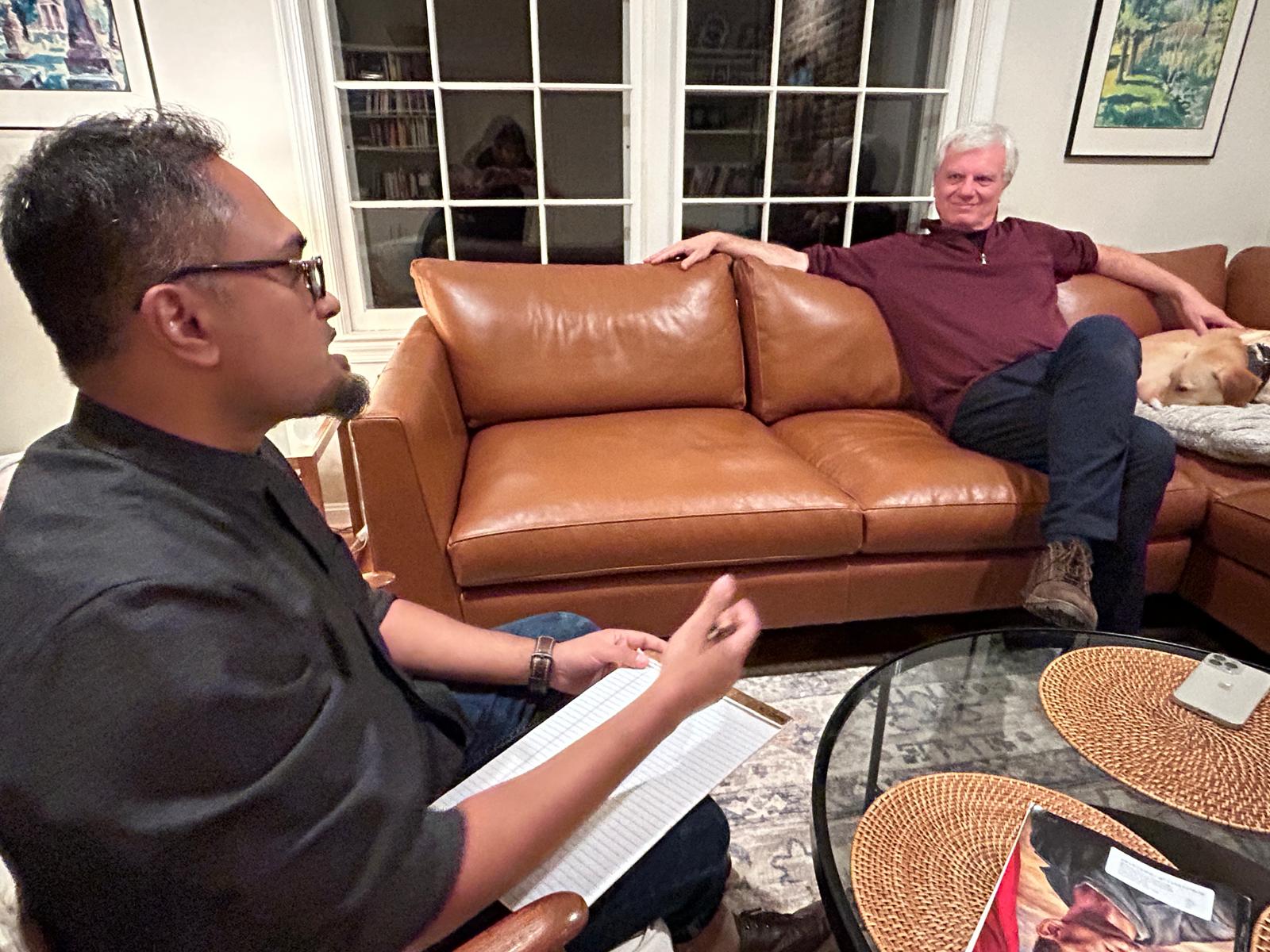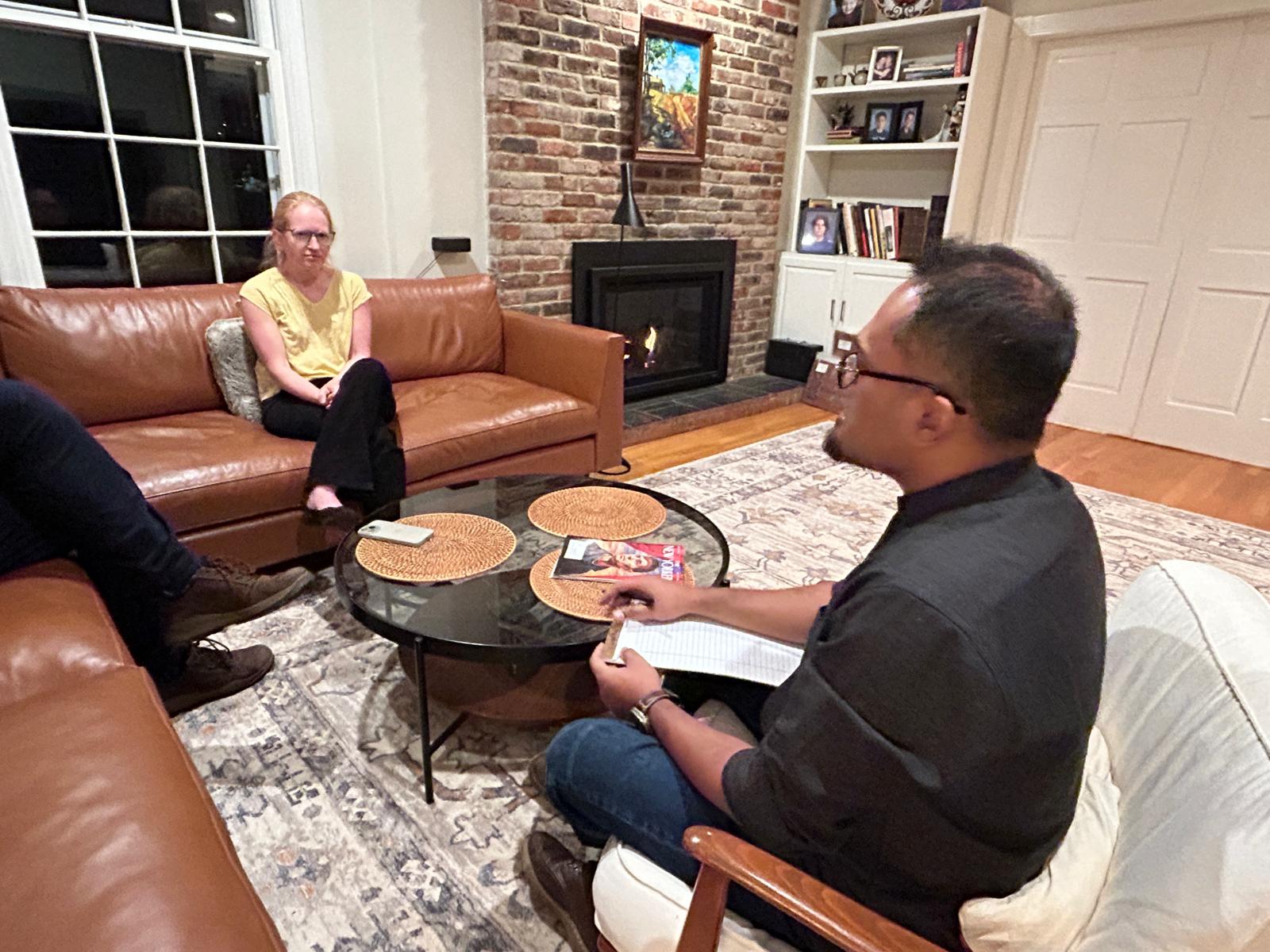Prominent U.S. journalists foresee reduced checks and balances under Trump’s second term
-673592b550d0e.jpeg)
Peter Canellos and Heidi Vogt (from left to right)
When Donald J. Trump won his "surprising" first term in 2016, journalist Susan B. Glasser wrote an article for Politico in which she coined the term “post-truth” America, arguing that the Trump vs. Clinton campaign tested nearly all assumptions about the power of the press.
This time, however, Trump’s victory came as less of a surprise to many, including veteran political journalists. One such journalist is Peter S. Canellos, managing editor [Enterprise] of Politico.
A seasoned journalist with experience in several elite U.S. newsrooms, Peter served as the executive editor overseeing Politico’s coverage of the 2016 election and is well-acquainted with the shifting political landscape of the U.S.
Peter is also an acclaimed author, with one of his books “The Last Lion: The Fall and Rise of Ted Kennedy” having been a New York Times bestseller in 2009.
Meanwhile, Heidi Vogt, National Security Editor at Politico, was somewhat taken aback by the election result. Heidi spent a decade as a foreign correspondent in Africa and Central Asia for The Associated Press and The Wall Street Journal, and returned to the U.S. in 2016 for a Nieman Fellowship at Harvard, the same year Trump was first elected.
On a windy night last week, following the election, Faisal Mahmud, editor of Bangla Outlook (English), sat down with these distinguished journalists for a 30-minute conversation about the U.S. election, Trump’s victory, and its possible implications.

Here is an excerpt from that discussion.
Faisal Mahmud: What’s your opinion on the recent election, especially with Trump being re-elected? What does his victory mean for the United States, and how might it impact the rest of the world?
Peter Cannelos: This election was crucial due to the significant policy differences between the two candidates. It’s especially important for U.S. economic policy, depending on whether Donald Trump follows through with his proposed plans. However, it’s even more critical in terms of foreign policy, particularly regarding Ukraine, which is Heidi’s area of expertise. She can elaborate on that.

Heidi Vogt: I’ll take the global perspective on this. One thing we know for certain about Trump is that he’s very isolationist, which raises questions about how much support the U.S. will continue to provide for Ukraine’s defense. More broadly, we’re transitioning out of four years under Biden, where the focus was on multilateralism—bringing allies together and working cooperatively.

Biden’s big success was the handling of Ukraine, with NATO playing a key role. With Trump back in the picture, we’re likely to see some retrenchment in foreign policy, but the real question is how much of that will happen and what Trump will actually follow through on. Specifically, when it comes to Ukraine, it’s unclear what his relationship with [Vladimir] Putin will look like. We can make educated guesses, but ultimately, it’s a matter of who will end up outmaneuvering whom.
FM: What do you think were the key factors behind Trump’s victory? Was it the state of the economy, his remarks on immigration, or other issues? What do you see as the main drivers of his success?
PC: I believe the main factor behind Trump’s victory was inflation. Since the pandemic, not only in the U.S. but globally, inflation surged, largely due to supply chain disruptions. Some argue that spending programs from the Biden administration worsened inflation, but the reality is that inflation has come down significantly, now sitting at 2.1% annually, which is close to the Federal Reserve’s target.
However, there’s a delayed recognition of these improvements. Prices were 19% higher when Biden took office, and that’s something everyone felt, contributing to a perception that the Biden administration failed on the economy.
Even though the U.S. economy has rebounded more successfully from the pandemic than most other countries, those economic successes didn’t translate into Democratic votes. Additionally, Trump managed to tap into the same societal divisions that fueled his initial rise—particularly class-based divisions.

On the East and West Coasts, there are many people who’ve done very well economically, but in other parts of the country, especially the Midwest and Central U.S., people feel their way of life has been overlooked. Trump skillfully exploited these divisions and frustrations, which played a key role in his victory.
FM: Heidi, same question to you, but with an additional point: Do you think the Biden and Harris campaigns failed to effectively communicate that the economy has actually rebounded from the pandemic and convince people of that?
HV: No, I actually think they repeated that message as much as they could. The problem is, if people feel that their lives have either not improved or even gotten worse, hearing someone say, “Look at the stats, the economy has rebounded,” can actually backfire. People vote based on how they feel, not just on numbers.
So, even if inflation is going down and job prospects are better, if it doesn't feel that way on the ground, the message doesn't resonate. And I think that ties into the class issues Peter mentioned—opportunity varies depending on factors like education and where you live. When you have someone who comes across as an East Coast elite telling you, “Everything’s fine,” that’s not likely to inspire confidence or make you want to vote for them.
I would also add a few other points. One is that, as you asked about whether the campaign effectively communicated that things were improving, we also have to consider the ongoing fragmentation of the media. It’s hard to know if any message is truly reaching the American electorate as a whole, because people are getting information from all kinds of sources—like podcasts, Instagram influencers, and their own echo chambers. This issue has been growing since 2016, and it's only become more pronounced over time.

FM: My second last question for Peter: If I’m not mistaken, the U.S. presidency has indeed seen an expansion of power over time. Trump has talked about implementing changes that would further strengthen the Executive. Do you think it will be possible moving forward for there to be more checks and balances within the system?
PC: I believe there will be fewer checks and balances in the system compared to Trump’s first administration, largely due to the circumstances surrounding this victory. Unlike the 2016 election, which was a close and surprising contest, this time Trump won by a significant margin in the Electoral College, and he’s also expected to win the popular vote.
As a result, he will face less opposition, both within the Republican Party and from the Democratic Party. In 2016, he was an outsider challenging the establishment, and the Democrats viewed him as somewhat illegitimate. Now, however, the Democratic Party has become more accepting of his legitimacy as president. This shift will reduce political opposition to him.
As for institutional checks and balances, those will also be weaker. Trump has appointed three Supreme Court justices, giving the Court a strong conservative majority—currently six Republican-appointed justices. Additionally, Trump’s experience and long control over the Republican Party mean he has been able to recruit loyalists who will fill key roles in his administration. In 2016, his administration was staffed by individuals who were more aligned with the traditional Republican establishment, not necessarily loyal to Trump. This time, the staffing will be much more loyal, further reducing checks and balances.

HV: I mostly agree with what Peter said. There will definitely be far fewer checks and balances this time around. Many of the people from the more traditional wing of the Republican Party who helped staff Trump’s previous administration were burned by that experience, and others are simply exhausted and won’t want to go through it again.
As Peter mentioned, there’s now a whole new group of people involved. Additionally, Trump seems to feel like he’s been given a sort of "blank check," especially with the fact that he can't be prosecuted for anything he did while in office.
In his first term, we often saw Trump make bold, sometimes extreme statements, only for his team to walk them back later, clarifying that what he said wasn’t exactly legal, but that they were pursuing something similar that was within the law. I think this time, we might see fewer of those back-and-forths and less of a need to “make it legal,” so to speak. There could be a more direct approach with less emphasis on legal justifications.
FM: My final question: What do you think Trump’s policy will be regarding the Middle East, especially considering the current turmoil in the region, including issues in Palestine, Lebanon, and beyond? Do you believe he’ll be able to bring an end to the Palestinian crisis, or broker peace between Israel and Gaza, or make any significant progress in that area? What’s your take on that?
PC: I don’t think addressing the Middle East will be as high a priority for Trump as it was for Biden. Trump has consistently taken a strong stance in support of Israel and its right to defend itself. While Biden shared that view, there were members of his administration who were more critical of Israel, and Biden himself often worked behind the scenes to temper some of Israel’s actions. Trump, on the other hand, will likely allow Israel to chart its own course in the region without such interventions.
FM: Same question to you Heidi, with an added consideration: Do you think this could create security concerns for the United States? Given that the Middle East is in such turmoil right now, do you believe it could lead to situations where terrorist attacks become more likely, or could the region become a breeding ground for more terrorism?
HV: I think that, regardless of who is president, achieving a peaceful resolution between Israel and Gaza, or with groups like Hamas and Iranian proxies, is extremely challenging. We’re at a point where it’s difficult to de-escalate, no matter whether it’s Harris or Trump in office. Will there be consequences from the current instability? Yes. Could it lead to an attack on the U.S.? It’s hard to predict. But the Middle East has reached such a level of instability that even if Trump were to become more involved and try to assert more influence, it would be difficult to avoid further regional confrontation.

FM: Here’s a bonus question: Trump has claimed that he could end the Russia-Ukraine war in 24 hours. How do you think that’s possible? Do you believe it’s really feasible, and if so, how might he go about it?
PC: No, ending the war in 24 hours? If we’re talking about Ukraine, that’s not realistic. As we discussed earlier, the United States has already provided a significant amount of aid to Ukraine, which strengthens President Zelensky’s position. Ukraine is not going to give up the fight in 24 hours, regardless of what Donald Trump claims.
HV: I’m trying to think if there’s any way I could give a different answer, but I really can’t. To be honest, the only thing that might potentially end the Russia-Ukraine war in 24 hours would be if every single ally abandoned Ukraine, which obviously isn’t going to happen. And even then, it wouldn’t happen that quickly.
It would take something extremely drastic for that to occur. The truth is, a lot of countries—not just the U.S.—have invested heavily in supporting Ukraine, helping them reach a point where they feel strong enough to negotiate with Russia. They still face a tough road ahead, but I think they believe they don’t need to rush into negotiations if they’re not in a favorable position.
FM: Thank you both for your time.
—-

